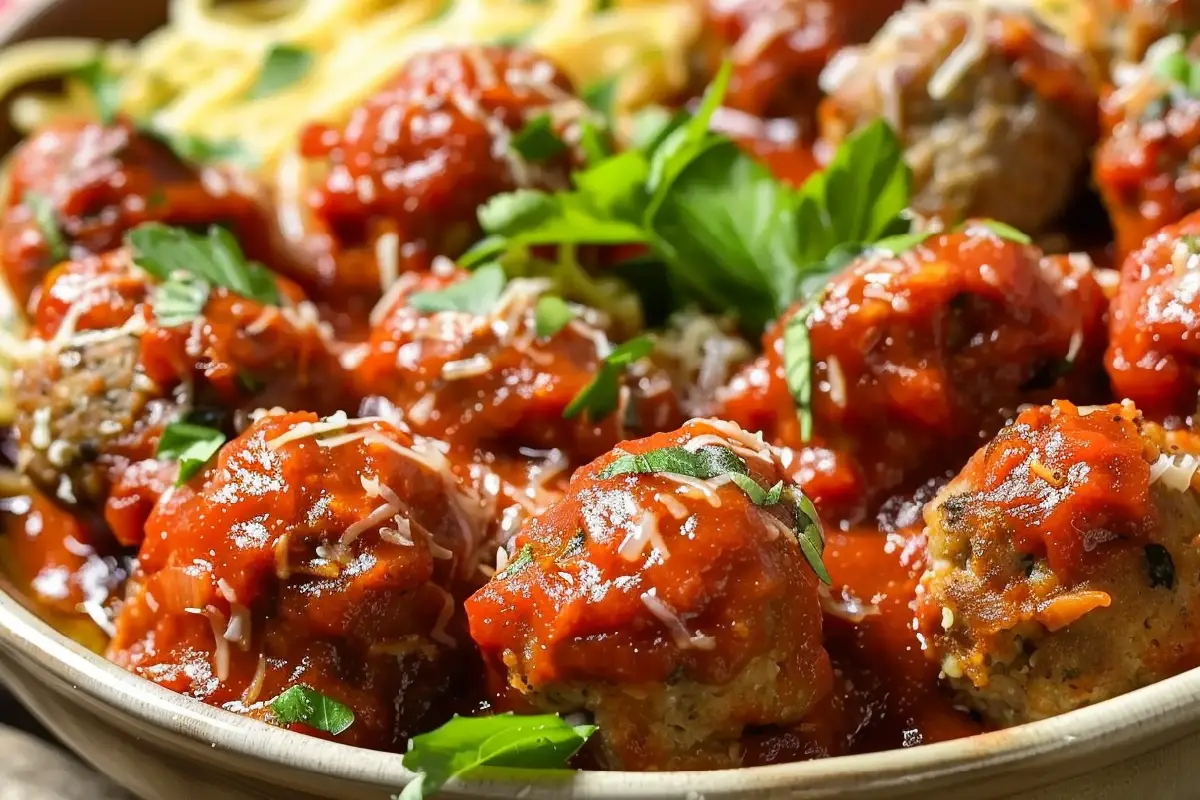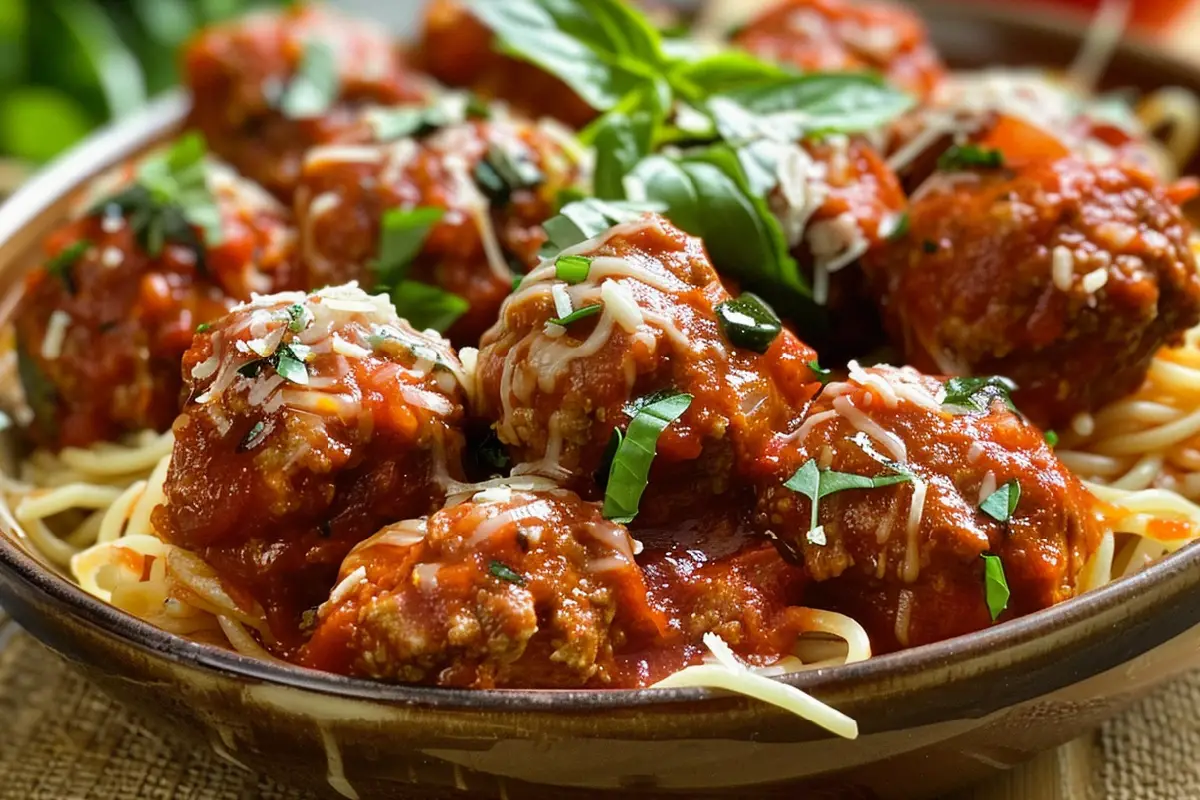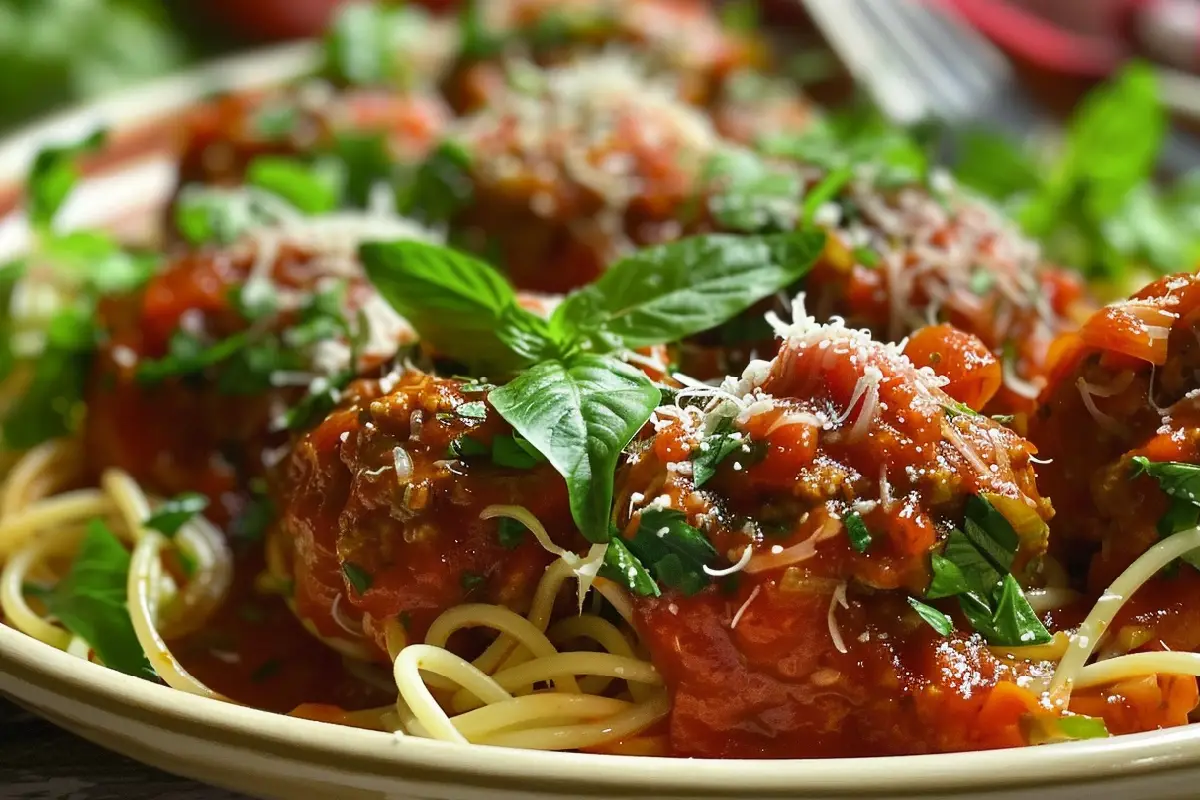Introduction to How Do You Keep Chicken Meatballs From Falling Apart
Cooking chicken meatballs can be both an art and a science. Whether you’re making them for a family dinner or meal prepping for the week, ensuring that your chicken meatballs stay together during cooking is essential for a tasty, satisfying meal. Unfortunately, one of the common issues home cooks encounter is that their meatballs often fall apart while cooking. This issue can ruin both the texture and presentation of the dish. So let’s dive into How Do You Keep Chicken Meatballs From Falling Apart.
This article will explore the primary reasons why chicken meatballs crumble and provide detailed solutions on how to prevent it from happening. By the end, you’ll know exactly how to make meatballs that hold together and are full of flavor, ensuring that your dish is a hit every time.
Common Causes: How Do You Keep Chicken Meatballs from Falling Apart?
Before we dive into how to fix the issue, it’s important to understand the root causes. Why exactly do chicken meatballs fall apart?
Here are the most common reasons:
- Lack of Proper Binding Agents: Chicken meatballs need a binding agent to hold them together. Eggs, breadcrumbs, and even cheese are common binders that help prevent your meatballs from disintegrating while cooking.
- Over-Mixing the Meat: When you over-mix ground chicken, it can cause the proteins to break down too much, resulting in a texture that’s too loose to form cohesive meatballs.
- Too Much Moisture in the Mixture: Ingredients like onions, milk, and eggs can add moisture to the mixture, which is good for flavor but can make the meatballs too wet to hold together properly. It’s crucial to balance these ingredients.
- Skipping the Chilling Step: If you skip chilling the meatball mixture, it can result in a soft mixture that falls apart during cooking. Chilling helps the mixture firm up, making it easier to handle and cook.
- Wrong Cooking Technique: Whether you’re frying, baking, or simmering your meatballs in a sauce, each method requires a different approach. Without the right technique, your meatballs can end up breaking apart.
Understanding these causes is crucial to preventing crumbly meatballs and ensuring that your dish turns out just right.
Choosing the Right Binding Ingredients

One of the key steps to ensuring that your meatballs hold together is using the proper binding ingredients. Chicken is a lean meat and doesn’t have the natural fat content that other meats like beef or pork do, which means it needs extra help to maintain its shape.
Eggs as a Binder
Eggs are a classic binder for meatballs. They act as the glue that holds all the ingredients together. However, it’s important to use the correct ratio. Generally, one egg per pound of meat is sufficient. Too many eggs can make the mixture too wet, which can lead to crumbling.
Breadcrumbs and Milk
Breadcrumbs serve two purposes: they act as a filler and a binder. Soaking the breadcrumbs in milk before adding them to the mixture is an excellent way to prevent the meatballs from becoming dry, while also helping them stick together.
To avoid too much moisture, you can control the amount of milk you add to the breadcrumbs. The soaked breadcrumbs will ensure that the meatballs stay soft without falling apart.
For a meatball variation that focuses on using breadcrumbs to maintain texture, try checking out this recipe for cheesy mashed potatoes, which uses breadcrumbs in a similar fashion.
Cheese as a Binding Ingredient
Cheese, especially hard varieties like Parmesan or Ricotta, can also act as a binder. In addition to adding flavor, it provides structure to the meatball mixture. This is particularly useful if you’re looking to enhance the taste while also ensuring that your meatballs stay together.
Adding cheese can also make the texture more indulgent. If you like the idea of combining meat and cheese in your recipes, you might want to explore chicken ricotta meatballs for a delicious variation.
Perfecting the Mixing Process
The way you mix your meatball ingredients is just as important as what you put in them. Over-mixing the meat can cause the proteins to break down too much, making the meatballs too loose and prone to falling apart. Here’s how to get the mixing process just right.
Gentle Mixing is Key
When mixing the ingredients together, use your hands and mix gently. Overworking the meat can lead to a dense, tough meatball. By mixing just until the ingredients are combined, you’ll ensure that the meatballs stay light and tender.
Layering Ingredients for Better Texture
One technique for achieving the perfect consistency is to layer your ingredients. Start by combining the binding agents (e.g., eggs, breadcrumbs, cheese) with the seasonings. Once these are well combined, gently fold in the ground chicken. This will ensure that everything is evenly distributed without overworking the meat.
Testing the Mixture
Before you start shaping all of your meatballs, it’s a good idea to cook a small test meatball to check the seasoning and binding. If the test meatball falls apart, you can adjust the mixture by adding more breadcrumbs or another egg to help bind the meat together.
Chilling the Mixture: How Do You Keep Chicken Meatballs from Falling Apart?
One crucial step that many people overlook is chilling the meatball mixture before cooking. This step allows the ingredients to bind together more effectively, helping the meatballs hold their shape when they hit the pan or oven.
Why Chilling Helps
When you chill the mixture, it gives the ingredients time to firm up. This makes it easier to form the meatballs and ensures that they don’t fall apart during cooking. Chilling also helps develop the flavors, making the meatballs taste even better.
How Long Should You Chill?
Ideally, you should chill the meatball mixture for at least 30 minutes before cooking. If you’re short on time, placing them in the freezer for 10-15 minutes can also work. The firmer the mixture, the easier it is to handle during cooking.
For larger batches, you can even freeze your meatballs. If you want to prepare in advance, freezing is a great option. Simply shape the meatballs, place them on a baking sheet, and freeze them for about an hour before transferring them to a zip-lock bag for long-term storage.
Cooking Techniques: How Do You Keep Chicken Meatballs from Falling Apart?
Now that we’ve covered binding agents, mixing, and chilling, let’s talk about the cooking methods. Different cooking methods require different strategies to keep your meatballs intact.
Frying the Meatballs
One popular method is to fry the meatballs before adding them to a sauce. Frying creates a crust on the outside, which helps to seal in the moisture and keep the meatballs from falling apart. Here are a few tips for frying:
- Use medium heat: If the heat is too high, the meatballs will cook too quickly on the outside and remain raw in the middle. Medium heat ensures even cooking.
- Dredge in flour: Lightly coat your meatballs in flour before frying. This creates a barrier that keeps them from sticking to the pan and helps them hold together better.
- Do not overcrowd the pan: Give each meatball space to cook properly. Overcrowding the pan can lead to steaming instead of frying, which can cause the meatballs to become mushy and fall apart.
Baking the Meatballs
If you prefer a healthier cooking method, baking your meatballs is a great alternative to frying. Baking ensures that the meatballs cook evenly, and you can avoid the mess of frying. Here are some tips:
- Bake at a moderate temperature: Baking at around 375°F ensures that the meatballs cook through without drying out or falling apart.
- Use a wire rack: Placing the meatballs on a wire rack allows the heat to circulate around them, cooking them evenly and keeping them from sticking to the baking sheet.
- Turn halfway through: Flip the meatballs halfway through the baking time to ensure that they cook evenly on all sides.
For an example of a dish that benefits from oven-baking techniques, check out this smoked meatloaf recipe, which also highlights the benefits of baking meat dishes evenly without falling apart.
Simmering in Sauce
If you plan on simmering your meatballs in a sauce, it’s best to sear them first. Searing creates a protective crust that keeps the meatballs intact while they cook in the sauce.
Here’s how to do it:
- Sear in a hot pan: Before adding your meatballs to the sauce, sear them in a hot pan with a little oil. This will lock in the juices and help the meatballs maintain their shape while they cook in the sauce.
- Simmer gently: Once you’ve added the meatballs to the sauce, make sure to simmer on low heat. High heat can cause the sauce to boil too vigorously, which can break apart the meatballs.
Avoiding Common Mistakes: How Do You Keep Chicken Meatballs from Falling Apart?
Even experienced cooks can make mistakes when preparing meatballs. Here are a few common mistakes to avoid to ensure your chicken meatballs stay intact:
- Overcrowding the pan: Whether you’re frying or baking, giving the meatballs space to cook is essential. If they’re too close together, they won’t cook evenly, and they may end up sticking together.
- Under-seasoning or over-seasoning: Not enough seasoning can make your meatballs bland, while too much seasoning can overpower the dish. Always test a small meatball before cooking the whole batch to ensure the seasoning is just right.
- Skipping the test meatball: Cooking a small test meatball is a simple way to check both the seasoning and the binding. This step ensures that your entire batch will turn out well without needing to make adjustments later.
Meatball Variations and Dietary Considerations: How Do You Keep Chicken Meatballs from Falling Apart?
Meatballs are highly versatile and can be adapted to fit a variety of dietary preferences and needs. Here are a few variations you can try:
Gluten-Free Meatballs
If you’re following a gluten-free diet, you can easily replace regular breadcrumbs with gluten-free alternatives. Options include almond flour, crushed gluten-free crackers, or gluten-free oats. Just be sure to soak them in milk or water to maintain the right texture.
Vegan or Vegetarian Meatballs
For plant-based diets, you can make vegan or vegetarian meatballs by using ingredients like chickpeas, lentils, or tofu. Instead of using eggs as a binder, try using flaxseeds or chia seeds mixed with water, or even mashed potatoes as a natural binder.
Low-Fat Meatballs
If you’re looking to cut down on fat, use lean meats like chicken breast. However, when using lean meat, you’ll need to add extra moisture in the form of eggs, cheese, or milk-soaked breadcrumbs to prevent the meatballs from becoming too dry and falling apart.
FAQs About How Do You Keep Chicken Meatballs From Falling Apart

Here are a few frequently asked questions that can help you prevent your meatballs from crumbling:
- Why do my meatballs fall apart in sauce?
- If your meatballs are crumbling in the sauce, it’s likely because the mixture has too much moisture or not enough binding agents. Make sure to use the right ratios of eggs and breadcrumbs.
- How many eggs should I use for chicken meatballs?
- A good rule of thumb is one egg per pound of meat.
- Can I substitute breadcrumbs with other ingredients?
- Yes, you can use alternatives like almond flour or crushed crackers to act as binding agents.
Conclusion On How Do You Keep Chicken Meatballs From Falling Apart
By following the right techniques, you can ensure that your chicken meatballs stay perfectly intact during cooking. From using the proper binding ingredients to mixing and chilling the meatball mixture and employing the right cooking methods, these tips will help you achieve consistently delicious and firm meatballs. Whether you’re frying, baking, or simmering them in sauce, your meatballs will be flavorful, juicy, and best of all, intact.

